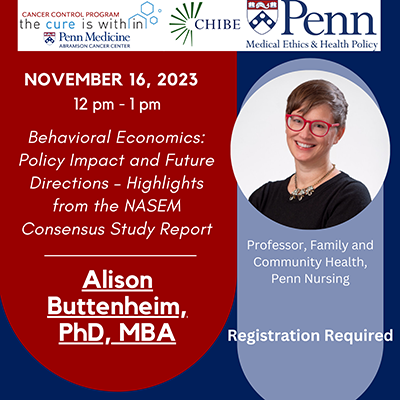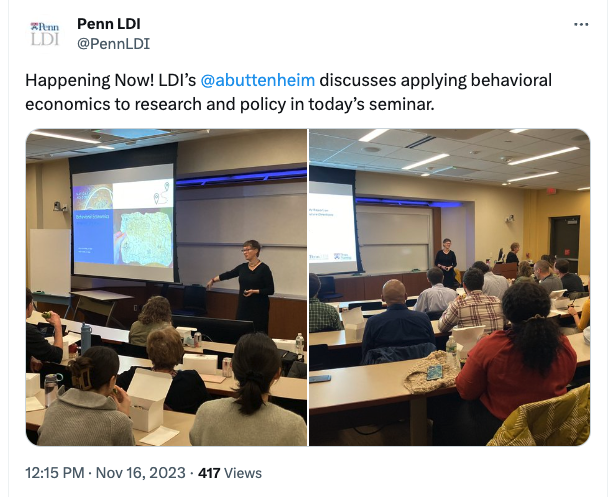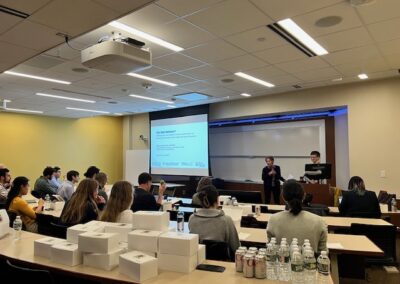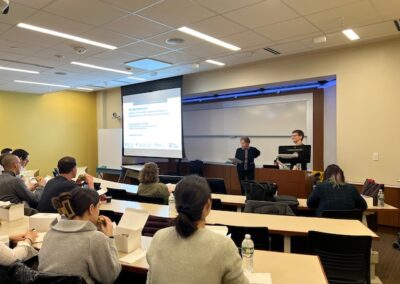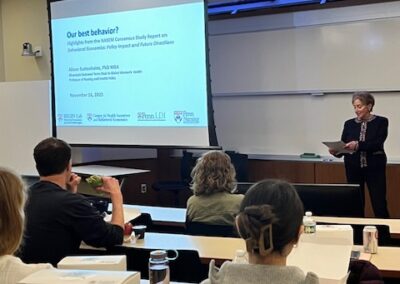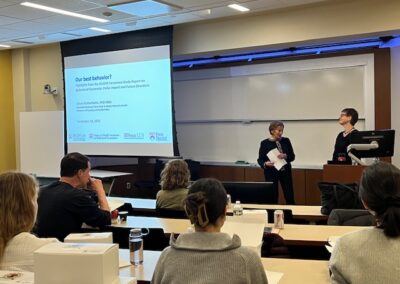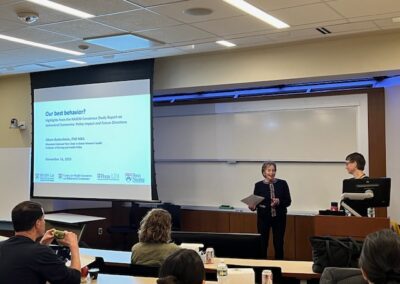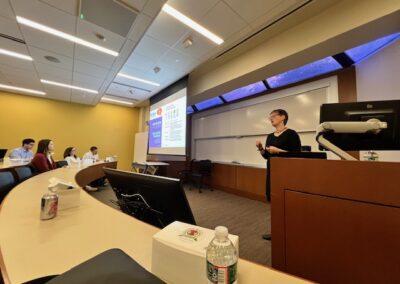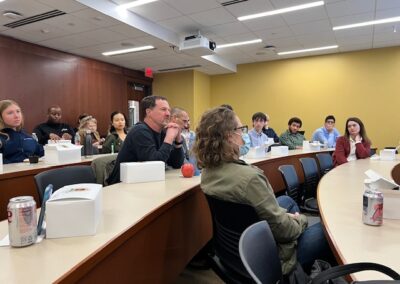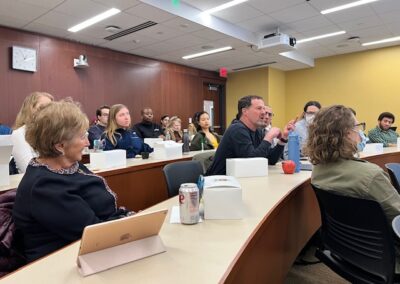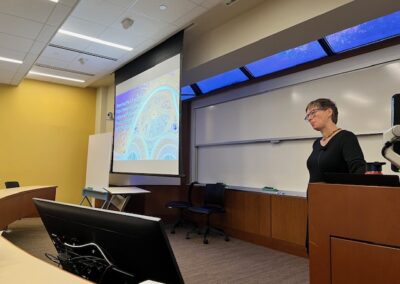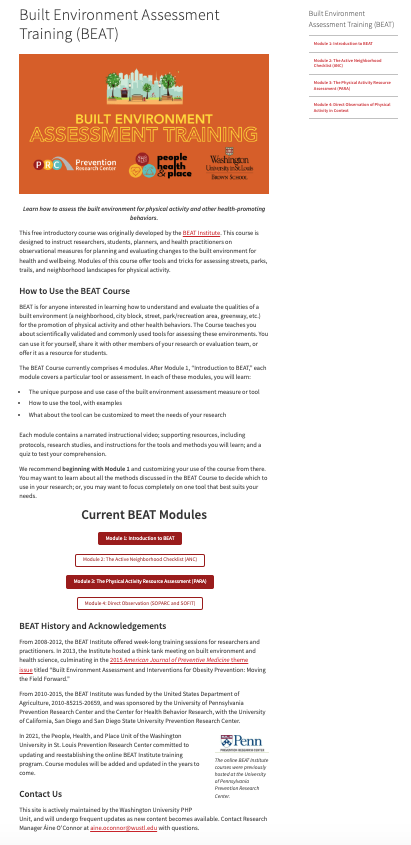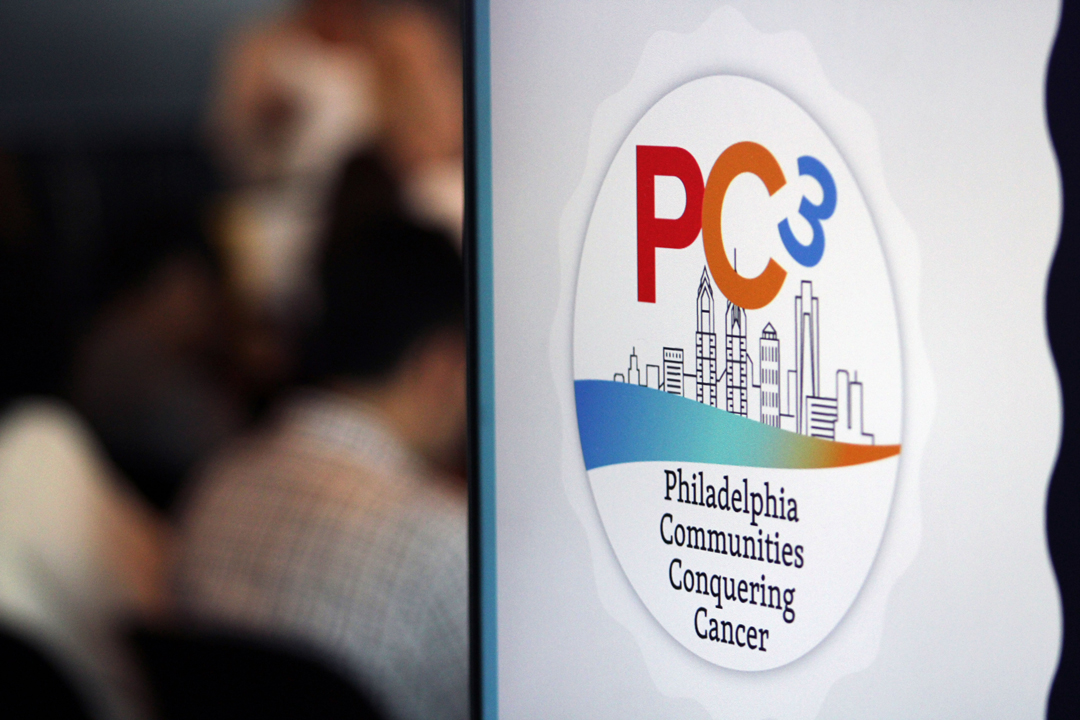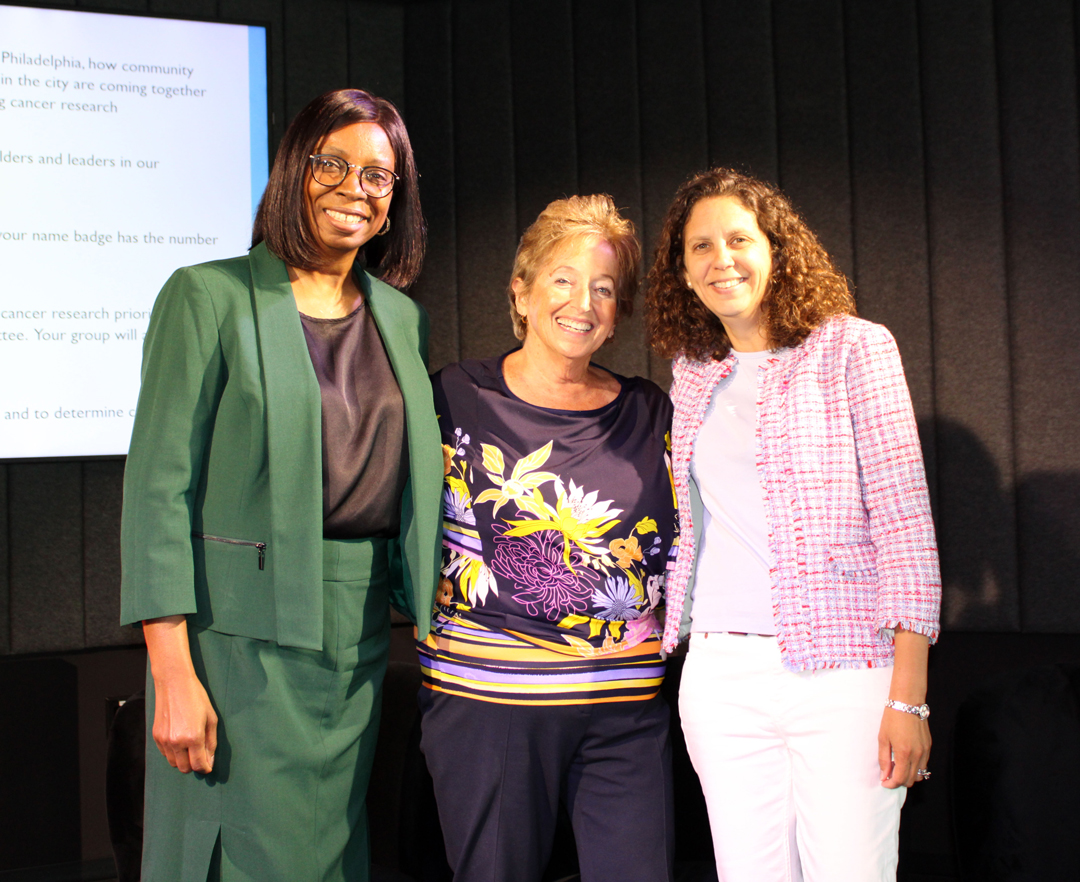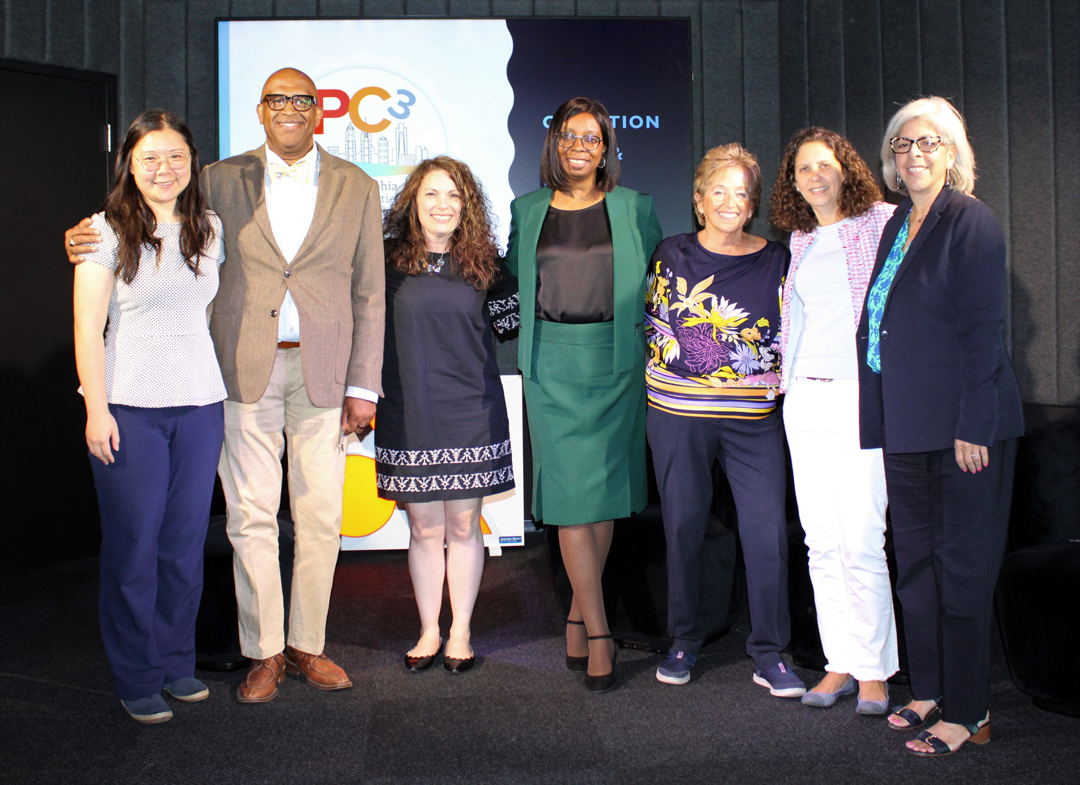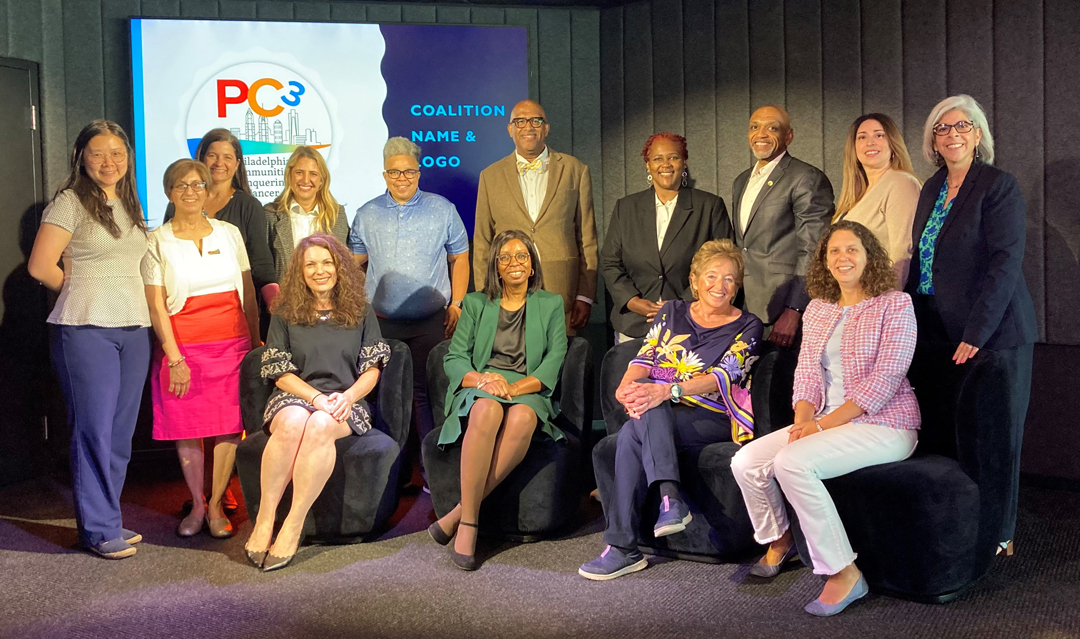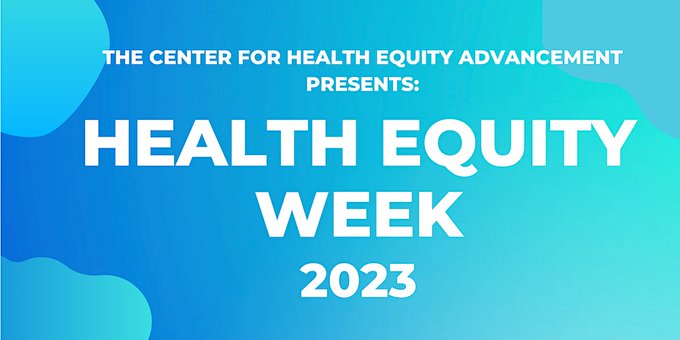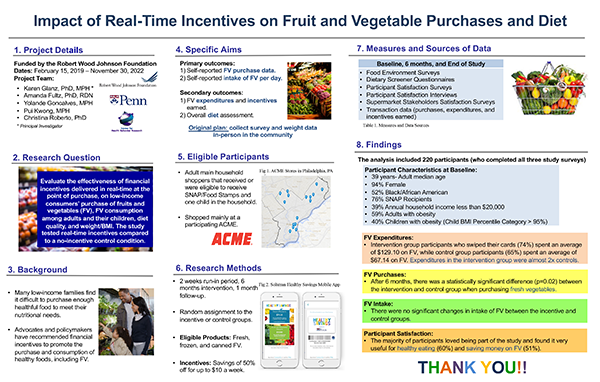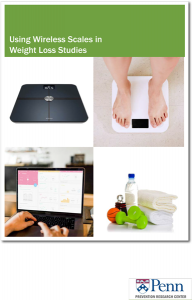Jan 25, 2024
The latest cancer statistics report from the American Cancer Society (ACS) paints a complex picture of our struggle against the disease. While cancer mortality rates are declining, a worrying trend emerges: younger people are being diagnosed at an increasing rate. This bittersweet news highlights both the progress we’ve made and the challenges that lie ahead.
This week, the Wall Street Journal delved into this story, seeking expert insights from several scientists, including Dr. Karen Glanz, a Penn cancer epidemiology powerhouse. Dr. Glanz, co-leader of the Penn Medicine Abramson Cancer Center’s (ACC) cancer control research program, provided independent commentary on the ACS report, shining a light on both the good and the not-so-good news.
The encouraging side?
The report reveals that 42% of cancers in the US can be attributed to modifiable risk factors like smoking, diet, and lack of exercise. This means that through proactive measures, we can potentially prevent nearly half of all cancer cases. “If we focused on physical activity, diet, and obesity as major risk factors for some cancers, the payoff could be enormous,” Dr. Glanz emphasized.
Dr. Glanz’s leads the Penn Prevention Research Center and the Center for Health Behavior Research and co-leads the Cancer Control Program at ACC. Her ongoing studies focus on promoting physical activity and reducing obesity, directly addressing the modifiable risk factors we can control.
Engage and Collaborate
But Dr. Glanz’s work is also driven by a passion for community engagement. Her leadership in the Philadelphia Communities Conquering Cancer collaboration is a testament to this. This initiative unites leading cancer centers with local leaders, empowering Philadelphians to fight cancer disparities through community-based interventions, resource sharing, and research.
So, while the ACS report reveals a sobering reality for younger cancer patients, it also underscores the immense potential for prevention. By focusing on modifiable risk factors and empowering communities, we can turn the tide on this disease. Research by Dr. Glanz and her colleagues provides a beacon of hope, a testament to the power of research, community engagement, and a relentless pursuit of a healthier future.
Dec 14, 2023
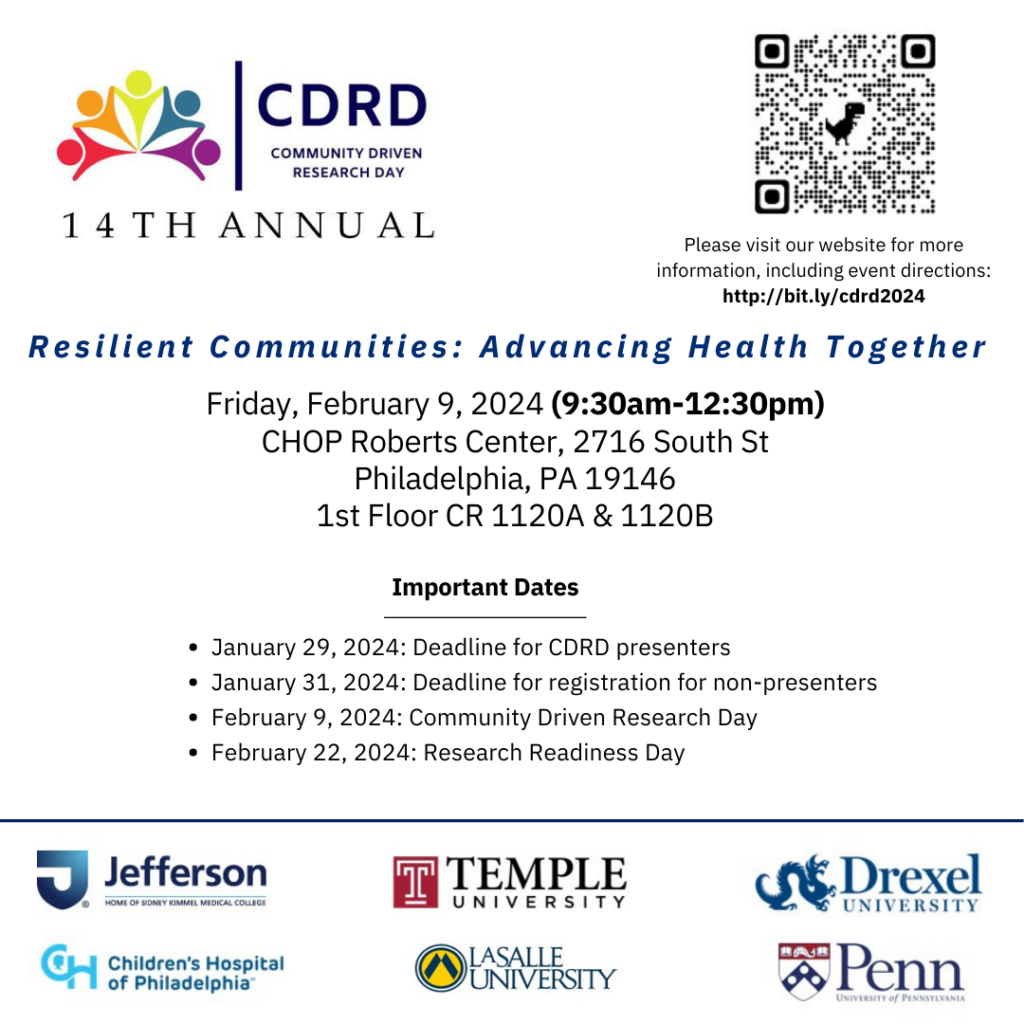
Community-Driven Research Day (CDRD) is a program that encourages collaboration between researchers and community-based organizations (CBOs)/community groups that have research questions they are interested in answering.
Through CDRD, Community-Based Organizations (CBOs) and community groups interested in developing partnerships to conduct research participate in an interactive rapid presentation that highlights their mission, goals, and major accomplishments and displays research questions they are interested in answering to health and equity for their community members.
The 2024 Community-Driven Research Day will be held on February 9, 2024 in Philadelphia. The event will open with a panel of past CDRD awardees and community-driven research experts presenting on effective community-academic collaborations. Following the panel discussion, CBOs and community groups will participate in an interactive poster session to highlight research questions of interest to researchers, public sector partners and others interested in community-academic partnerships.
The event is jointly sponsored by the following institutions: Children’s Hospital of Philadelphia, Drexel University, Temple University College of Public Health, La Salle University, Thomas Jefferson University, and the University of Pennsylvania.
We are committed to community-based participatory research, which includes the basic tenet that both community partners and research partners are involved in all phases of research, allowing community capacity and related opportunities to be developed and sustained. The focus of CDRD is about making connections, and the CDRD organizing committee is willing to help facilitate connections.
Small grants are awarded to promising community partner-researcher collaborations annually through a competitive submission process.
View the 2024 flyer
Presenter Registration
Non-Presenter Registration
Find more event details here
Dec 6, 2023
Karen Glanz, PhD, MPH, received two distinguished honors in the month of November. Dr. Glanz is the George A. Weiss University Professor, Professor of Epidemiology in the Perelman School of Medicine, Professor of Nursing in the School of Nursing, and Director of the Center for Health Behavior Research at the University of Pennsylvania. Now she can add Fellow of the College of Physicians of Philadelphia and two-time Best Female Scientists to her list of titles.
A LEGACY IN INK AND IMPACT
On November 17th, Dr. Glanz was joined by colleagues and guests at the College of Physicians of Philadelphia as she became a Fellow of the College of Physicians. This historic society, dating back to 1787, is dedicated to “better serving the public and lessening human misery.” Dr. Glanz’s signature now joins a legacy of medical luminaries, a testament to her exceptional contributions to the field.

Glanz joins many colleagues at Penn and in the Department of Biostatistics and Epidemiology who are fellows, including Drs. John Holmes, Kevin Johnson, Ann O’Sullivan, and Dean Sara Bachman of the School of Social Policy and Practice.
SHINING A LIGHT ON WOMEN IN SCIENCE
Dr. Glanz’s inclusion in Research.com’s ranking of Best Female Scientists 2023 is equally inspiring. Glanz was ranked as one of the Best Female Scientists for the 2nd year in a row!
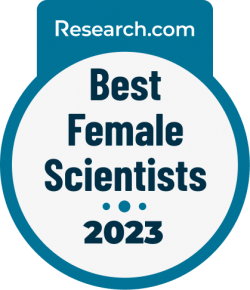
The full details on their ranking process can be found on their website, where Dr. Glanz was ranked 546 out of 166,880 female scientists. Sixteen women at the University of Pennsylvania are also on the list.
| The 2nd edition of Research.com ranking of top female scientists in the world is based on data acquired from a wide range of bibliometric sources including OpenAlex and CrossRef on 21-12-2022. Position in the ranking is based on a scientist’s overall H-index.
This ranking of best female scientists in the world comprises of leading female scientists from all key areas of science. It was based on a detailed analysis of 166,880 profiles. |
Health Behavior: Theory, Research, and Practice, the book for which Dr. Glanz is the lead Editor, has been cited 11,170 times (3rd edition, 2008). This speaks volumes about the book’s impact, which plays a major role in shaping the way we approach understanding health-related behavior and empowering individuals to make informed choices about their well-being. See the list of some of her most-cited publications at the bottom of her profile page on Research.com.
These honors are not just accolades; they are testaments to Dr. Glanz’s many productive years of work and her unwavering dedication to improving health through research.
Oct 5, 2023
A special lecture with Alison Buttenheim, PhD, MBA was held at the University of Pennsylvania on November 16, 2023.
Behavioral Economics: Policy Impact and Future Directions – Highlights from the NASEM Consensus Study Report
The hybrid event was co-sponsored with the Population Science Research Programs at the Abramson Cancer Center (ACC), the Health Policy Division in the Department of Medical Ethics and Health Policy (MEHP), and the Center for Health Incentives and Behavioral Economics (CHIBE).
Oct 2, 2023
The Community Engagement and Research Core (CEAR) at the University of Pennsylvania has awarded pilot grant funding for 2023-2024. Two projects were selected to receive funding through the CEAR Pilot Grant Program, and one project was selected to receive funding through Community Driven Research Day and will be co-funded with Penn Center for Public Health (formally Center for Public Health Initiatives, CPHI)

CEAR pilot grant recipients:
Screening for Nutrition in Oncology Settings for Underserved Rural Communities with Food Insecurity and Social Determinants of Health Challenges
- Tamara Cadet, PhD, MPH (Associate Professor, Social Policy & Practice)
Health Care Use Among Patients Newly Insured via Hospital-Based Insurance Linkage
- Elinore Kaufman, MD, MSHP (Assistant Professor, Surgery)
The Community Engagement and Research (CEAR) Core of the Clinical and Translational Science Award (CTSA) at the University of Pennsylvania has made pilot grant funding available for research with public and community health relevance since 2014.

CDRD pilot grant recipient:
The Preparation and Pilot Implementation of HOPE-ish: A Mental Health Awareness Program
Community-Driven Research Day (CDRD) is a program that encourages collaboration between researchers and community-based organizations (CBOs)/community groups that have research questions they are interested in answering.
Sep 5, 2023
The Built Environment Assessment Training (BEAT) Institute grew out of the recognition that environmental and policy changes are some of the most promising strategies for controlling obesity and improving diet and physical activity. A new Built Environment Assessment Training (BEAT) has been updated by the People, Health, and Place Unit of the Washington University in St. Louis Prevention Research. Originally developed at the University of Pennsylvania Center for Health Behavior Research and the UPenn Prevention Research, the course is designed for planning and evaluating changes to the built environment for health and wellbeing. Specifically, to instruct researchers, students, planners, and health practitioners on observational measures. The modules of this course offer tools and resources for assessing streets, parks, trails, and neighborhood landscapes for physical activity.
History of BEAT
From 2008-2012, the BEAT Institute offered week-long in-person training institutes for researchers and practitioners. In 2013, the Institute hosted a think tank meeting on built environment and health science.
From 2010-2015, the BEAT Institute was funded by the United States Department of Agriculture, 2010-85215-20659, and until 2021 it was sponsored by the University of Pennsylvania Prevention Research Center and the Center for Health Behavior Research, with the University of California, San Diego, and San Diego State University Prevention Research Center.
Inspired Activity
The research culminated in the 2015 American Journal of Preventive Medicine theme issue titled “Built Environment Assessment and Interventions for Obesity Prevention: Moving the Field Forward.” Learn more about the issue here.
PHP Unit Steers the Ship
In 2021, the of the Washington University in St. Louis Prevention Research Center committed to updating and reestablishing the online BEAT Institute training program. Course modules will be added and updated in the years to come.
We continue to collaborate with the PHP team as they update the courses and site with new and expanded content, including training and tools for measuring nutrition environments. If you have questions about the current BEAT course, please contact Research Manager Áine O’Connor at aine.oconnor@wustl.edu.
Visit our BEAT website at the Perelman School of Medicine at the University of Pennsylvania HERE to learn more.
Jun 30, 2023
We heard very moving personal stories from some cancer survivors and ‘pep rally’ encouragement from a former Eagles player.
Everyone gave input into helping us process the Listening Sessions and think about our future research and program priorities to reduce cancer disparities in Philadelphia.
PC3 Academic Partner, Abramson Cancer Center at Penn Medicine, University of Pennsylvania
On June 15, 2023 representatives from health systems, cancer centers, stakeholders, and Philadelphia community members discussed concerns about cancer in the region and charted a path forward to reduce disparities in our city.
The group was assembled by the Philadelphia Communities Conquering Cancer (PC3) collaboration, whose mission is to empower Philadelphians to reduce cancer disparities through community engagement, resource alignment, information sharing, research, and prevention. An opportunity funded by PCORI.
The Patient-Centered Outcomes Research Institute (PCORI) is a nonprofit organization authorized by Congress to fund comparative clinical effectiveness research, or CER. The studies funded are designed to produce reliable, useful information that will help patients, family caregivers, clinicians, employers, insurers, policy makers, and others make better informed health and healthcare decisions. The work is guided by a Board of Governors representing the entire healthcare community. The coalition is made up of representatives from Abramson Cancer Center at Penn Medicine, Sidney Kimmel Medical College at Thomas Jefferson University, and Fox Chase Cancer Center. The funded project is “Building Capacity for Patient Centered Outcomes Research through a City-Wide Cancer Coalition.” Community members, patients, and stakeholders are the cornerstone of the project. The SAC guides all proposed activities and play key roles in planning, implementation, and dissemination. Additional community members and stakeholders host the listening sessions, participate in the consensus conference, and speak during the research advocate training program.
Visit the website to learn more about the programs, leadership, and community partners.
Jun 20, 2023
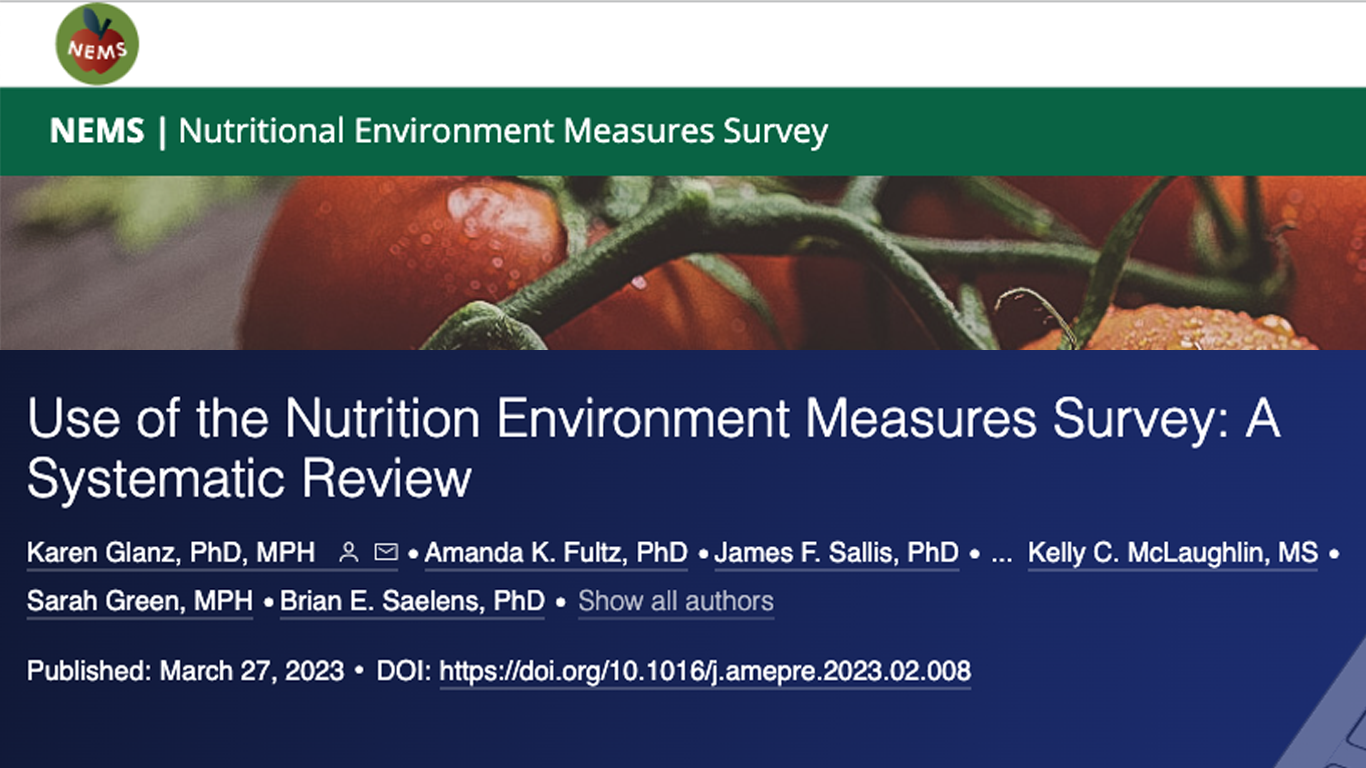 A Tool for Understanding the Food Environment
A Tool for Understanding the Food Environment
The Nutrition Environment Measures Survey (NEMS) is a set of tools that researchers use to assess the availability of healthy food options in stores and restaurants. NEMS tools have been used in research for over 15 years and have been adapted for diverse settings and populations.
A recent systematic review published in the American Journal of Preventative Medicine (AJPM) examined how NEMS tools have been used in published research. The review found that 190 articles from 18 countries had used NEMS tools. Most studies (69.5%) used a modified version of NEMS tools, and there were 23 intervention studies that used measures from NEMS tools or adaptations as outcomes, moderators, or process assessments.
Adapting to the times
The review also found that 41% (n=78) of the articles evaluated inter-rater reliability, and 17% (n=33) evaluated test–retest reliability. This suggests that NEMS tools are generally reliable and valid measures of the food environment.
The review concluded that NEMS measures have played an important role in the growth of research on food environments. NEMS tools have helped researchers to explore the relationships among healthy food availability, demographic variables, eating behaviors, health outcomes, and intervention-driven changes in food environments.
The review also noted that the food environment is constantly changing, so NEMS measures should continue to evolve. Researchers should document the data quality of modifications and use in new settings.
Conclusion
NEMS tools are a valuable tool for understanding the food environment. They have been used in a wide variety of research settings and have helped to advance our understanding of the relationships between the food environment and health. As the food environment continues to change, NEMS tools should continue to evolve to meet the needs of researchers.
Glanz K, Fultz AK, Sallis JF, Clawson M, McLaughlin KC, Green S, Saelens BE. Use of the Nutrition Environment Measures Survey: A Systematic Review. Am J Prev Med., 65:1, 131-142, July 2023. EPub March 2023. doi: 10.1016/j.amepre.2023.02.008. PMID: 36990939.
Apr 10, 2023
The poster presenting the results from the healthy eating study conducted by Karen Glanz, PhD, MPH; Amanda Fultz, PhD, RDN; Yolande Goncalves, MPH; Pui Kwong, MPH; and Christina Roberto, PhD., was chosen as one of the top ten posters in Penn Medicine’s 8th Annual Health Equity Initiative Awards. The posters that were chosen were quite impressive and presented by contributing authors during a virtual, lightning round event on Thursday, April 6, 2023.
Nov 21, 2022
• Find the latest publication in this study along with others in the project here.
• Read more about Dr. Schwartz and the Childhood Cancer Survivorship Program on the CHOP Research blog.
Citation:
King-Dowling S, Psihogios AM, Hill-Kayser C, Szalda D, O’Hagan B, Darabos K, Daniel LC, Barakat LP, Fleisher L, Maurer LA, Velázquez-Martin B, Jacobs LA, Hobbie W, Ginsberg JP, Vachani CC, Metz JM, Schwartz LA. Acceptability and feasibility of survivorship care plans and accompanying mobile health intervention for adolescent and young adult survivors of childhood cancer. Pediatr Blood Cancer. 2021 Mar;68(3):e28884. doi: 10.1002/pbc.28884. PMID: 33416214
The transition between adolescence and adulthood can be a bumpy ride. Add overcoming cancer to that journey and self-care can get swept up among the many developmental landmarks. A study has been underway where researchers aim to reach these young adults through a mobile app, delivering a survivorship plan and management of their post-cancer care.
“Ultimately, this study could inform a more tailored approach to intervention to keep AYA (Adolescent & Young Adult) survivors at risk for poor self-management and disengagement more motivated and engaged,” Dr. Schwartz said. “They survived cancer. We want to protect that investment and have them live long healthy adult lives.” Lisa Schwartz, PhD is Associate Professor of Pediatrics at the University of Pennsylvania and a psychologist in the Division of Oncology and the Childhood Cancer Survivorship Program at CHOP. Integrating Self-Management Education with Cancer Survivorship Care was funded by the Centers for Disease Prevention and Control (CDC) as a Special Interest Project (SIP) in the UPenn Prevention Research Center from 2015-2018. The SIPs receive funding through competitive calls for proposals to address topics of interest or gaps in scientific evidence.
Pediatric Blood & Cancer published the study’s findings in their article “Acceptability and feasibility of survivorship care plans and an accompanying mobile health intervention for adolescent and young adult survivors of childhood cancer.” It was concluded that the mobile intervention was accessible and helpful to users, but it needs more refinement and research.
Aug 9, 2022
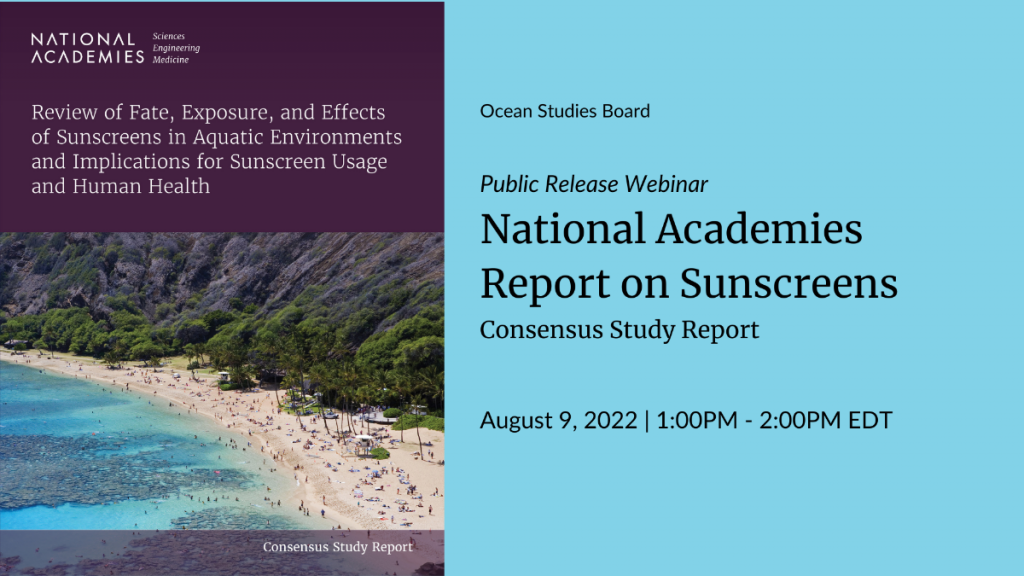
The National Academies presented a public release webinar of a new report on Tuesday, August 9 from 1:00pm to 2:00pm EDT. The report, Review of Fate, Exposure, and Effects of Sunscreens in Aquatic Environments and Implications for Sunscreen Usage and Human Health, calls on the U.S. EPA to conduct an ecological risk assessment of UV filters to characterize possible risks to aquatic ecosystems and the species that live in them. The report contains information useful for such an assessment. It also describes the role of sunscreens in preventing skin cancer and what is known about how human health could be affected by potential changes in usage. The committee chairs shared key takeaways and responded to questions during the webinar.
For further details about the study, visit the project webpage.
UPennPRC and CHBR director and UPenn DBEI faculty, Karen Glanz, PhD, MPH, is on the committee. Dr. Glanz addressed the impact of UV filters on human health and stated the many factors involved, including correct application of sunscreen and the use of other barriers such as rash guards. Read the article on the report that she co-authored for The Conversation, here.
Download the report
View webinar slides
Watch the webinar

Mar 29, 2022
The Community Engagement and Research (CEAR) Core of the Clinical and Translational Science Award (CTSA) at the University of Pennsylvania is making pilot grant funding available for research with public and community health relevance. We are especially interested in proposals that address prevention and management of heart disease and cancer risk.
This call for proposals is open to faculty and postdocs with significant public and community health-related experience at Penn and is intended to:
- Foster interdisciplinary research in public health at Penn that will have meaningful results at the community level.
- Assist in garnering external support for large-scale studies in the field of public health.
- Encourage additional faculty and staff at Penn to become involved in public health research.
- Identify the innovative methodologies in the field of public health that have the potential of informing local, state, and national policy and programming.
Click HERE for the Call for Proposals.
DEADLINE EXTENDED! Applications for the 2022-2023 funding cycle are due Thursday, April 7, 2022 by 5pm for a June 1st, 2022 start date.
Any questions should be directed to Krista Scheffey (krista.scheffey@pennmedicine.upenn.edu).
CEAR Core also awards pilot grant funds through Community-Driven Research Day (CDRD). Community-Driven Research Day is a collaboration between community groups and researchers at Penn, the Children’s Hospital of Philadelphia (CHOP), Temple University, Drexel University, and Thomas Jefferson University. CDRD is an opportunity for members of community organizations and academic researchers to come together to meet and discuss potential collaborations and community-academic partnerships.





